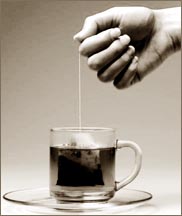
Aching joints
Hung-over of chikungunya
by Shanika Sriyananda
 He limps. With swollen ankles Mr. Perera in his 50s suffers from
aching joints. Numbness in the hands and sometimes in the feet too has
compelled him to be confined to his room for days. He has lost his
appetite, and suffers from high fever (102-103 degrees) which continues
for over four days. He limps. With swollen ankles Mr. Perera in his 50s suffers from
aching joints. Numbness in the hands and sometimes in the feet too has
compelled him to be confined to his room for days. He has lost his
appetite, and suffers from high fever (102-103 degrees) which continues
for over four days.
While you are in the street, you could observe the majority of people
- young and old - having walking difficulties. Their speed is slow. Not
that they suffer from major ailment but it is due to a mosquito borne
disease which attacks joints.
Though it is not deadly, it makes the patients feel that they are
terribly ill.
Thanks to those who pay scant attention to their environs, the
disease meaning 'bent joints' have spread its wings to most parts of the
country. And the limping majority put it down to chikungunya.
There is neither a pill nor a syrup that could bring relief to
chikungunya patients. The health experts' advice is to have good rest.
But there the practical problem arises. How many chikungunya patients
have the privilege to get plenty of rest. Absence of leave from
workplaces makes them reach the acute stage of the disease, which attack
the patient's joints.
Consultant Epidemiologist of the Epidemiology Unit Dr. Ananda
Amerasinghe says that chikungunya cases are coming down naturally with
the number of mosquito breeding places reducing, but those who are
already infected with the disease, will have to suffer for weeks. "This
situation is mainly due to lack of proper rest. If the patients do not
take rest the virus will attack the joints and they have to suffer for
six to eight weeks", he cautions.
Dr. Amarasinghe says that suffering is greater in the older people
due to inflammation of joints. "The other most important thing is to
have regular meals though the patient may lose his appetite. When the
system is weak the virus tends to attack easily and a weak body will
retain the virus longer", he adds.
According to Dr. Amarasinghe, self medication will make the disease
worse and the best advice is to get medical advice when the disease
attacks the joints.
"Once a person gets chikungunya there is a guarantee according to the
nature of the disease that he would not get the disease for three
decades and sometimes for the rest of his life", he says.
Dr. Amarasinghe says to avoid the 'sufferings' of chikungunya is to
avoid working hard.
***
Chikungunya is a viral disease which spreads from the bite of a
mosquito called Aedes aegyphi. This mosquito breeds in fresh water.
The best advice given by the epidemiologists to prevent further
spreading of the disease is destroying the mosquito breeding places.
Warm and humid climate and water reservoirs serve as breeding ground
for chickungunya. Cleanliness has to be advocated. A clean environment
keeps the mosquitoes at bay. It is very essential to keep oneself safe
from mosquito bites.
Using mosquito repellents containing Deet or Permethrin can prove an
effective cover from getting targeted by the mosquitoes. Both are
chemicals used in keeping mosquitoes and ticks, away. They are insect
repellents that can be used on the clothes.
They play an active role in blinding the senses of the insects to
keep away from getting victimized. They can also be used on mosquito
nets. They are effective participants in the prevention of mosquito
borne diseases like dengue and malaria. Skin irritations owing to their
usage are uncommon.
It is also very important to drain out any stagnated water around the
residence. Any containers or flowerpots containing water has to be
emptied. Clothing that aids in minimal exposition of the body has to be
adopted like full sleeves shirts or tops and pants.
Victims should be safeguarded against further bites. They are easy
and simple. Tried out, so that you and your family and your neighbours
would be free of all the mosquito borne diseases including dengue and
chikungunya.
* Water in containers should be replaced at least once in three days.
Water tanks should be emptied and left to dry for at least one hour
before refilling them with clean water.
* Steps must be taken to avoid mosquito bites. Mosquito nets,
mosquito repellant creams and coils mey be used.
* Bleaching powder can be mixed in water, which will not be used for
drinking.
* Care should be taken not to allow stagnant water in and around
houses.
The fever normally comes down in about a week's time but however the
prevalence of the other sympti like insomnia, headache and particularly
the joint pains are said to prolong for weeks. In older victims the
joint pains are said to torture for even a couple of months
[email protected]
Dementia and psychology
by Dr. R. A. R. Perera
Unfortunately dementia or forgetting is becoming more common as our
population becomes older. Dementia causes clinical problems that
interfere with work, social activities and relationships.
The main feature is memory loss which impairs judgement, thinking and
personality change. Psychologists diagnose memory loss by a test called
Mini Mental State Examination. This assesses orientation for time and
place, short term memory, language and attention span.
The main task of a psychologist is to differentiate dementia from
depression and a confused state due to other reasons, especially
medications.
Some of the medications used for other illnesses can cause a confused
state, which will show as dementia. A person with dementia can have both
depression and a confused state due to other medications or due to
illness. Main causes of dementia are Alzheimer's disease and vascular
problems like high blood pressure.
If dementia is progressing and causes problems to the family members
and others, a psychological intervention like behavioural therapy is a
useful non-pharmacological treatment. But sometimes medication is
necessary despite their considerable risks in older people.
Alzheimer's disease is a condition of brain degeneration leading to
irreversible decline of cognitive functions and personality changes.
Some drugs (used in arthritis, cholesterol reducing drugs, vitamin E and
estogens used in hormone replacement therapy) can cause delay in
development of dementia.
In the area of prevention, the reduction of vascular risk factors
such as high blood pressure, diabetes, obesity, high cholesterol states,
and smoking, reduce strokes and heart diseases but also contribute to a
lessening risk in developing dementia.
As patients age and some start to lose their mental faculties, legal
issues arise concerning their decision-making capacity, especially
regarding decisions and consent about a particular medical procedure.
In SriLanka the consent for medical treatment is usually obtained
from the patient's relatives. If the patient has appointed a surrogate
decision-maker before the patient became incompetent, that person may
consent or refuse medical procedure.
If no one has been appointed by the state or by the patient - the
most common case - a relative or carer has the legal authority to
consent. Decision-makers for the patient must act in the patient's best
interest and if there is a doubt about this, their decisions can be
reviewed and overturned by the state.
A clarification: Latest epidemic of heart disease in South Asia
I refer to the article entitled Atherocoronary Metabolic Syndrome (AAMS)
by Professor Rohan Jayasinghe (RJ), consultant cardiologist, Gold Coast
Hospital, Australia appearing in a recent newspaper.
I fully agree with R.J. (a) that the pattern of coronary heart
disease (CHD) occurring among Sri Lankans is somewhat different from
that of white Caucasians and (b) that unlike in the West, CHD is common
in the young (those below the age of 40 years) and this has been
documented in Sri Lankan medical literature in 1975. The commonest
coronary risk factor in this young myocardial infarct group is smoking
although at the time this was reported, hypertension, diabetes (DM) and
obesity were not common in this group of young infarcts studied.
I don't agree with RJ that (a) traditional risk factors for CHD such
as diabetes, hyperlipidaemia hypertension and smoking are not common
among Sri Lankans, especially among the CHD patients we come across in
urban areas, where CHD is quite common at present. (b) I also don't
agree with R.J. that Homocysteinaemia (high plasma levels of amino acid
homocysteine which is a well-known coronary risk factor) is a
significant risk factor for CHD among Sri Lankans.
Although Homocysteinaemia has been reported among Sri Lankan CHD
patients in SLMA journal it is a rare coronary risk factor among Sri
Lankans. It is noteworthy that plasma homocysteine estimation (which is
a very expensive test) is not routinely done in Sri Lankan heart
patients at present, especially in those admitted to the government
hospitals.
We cardiologists arrange to do this test in the private sector and it
costs about Rs. 1500 to do the above test. I routinely arrange to do
this test in young heart attack patients. Can R.J. quote any reference
from a recognized scientific journal to prove his hypothesis for the
welfare of the Sri Lankan scientific community, that homocysteinaemia is
common in Sri Lanka? (c) I also don't agree with R.J. that cholesterol
subtype called LPa is responsible for the present epidemic of CHD in Sri
Lanka.
As far as I am aware there is no scientific evidence to show that
elevated blood levels of LPa are common among Sri Lankans.
Estimation of LPa is not done in Sri Lankans in the government sector
and in private sector, it costs Rs. 2000 per patient to estimate the
blood level of LPa, and as far as I am aware no Sri Lankan has done a
scientific study and I would be very grateful if R.J. could quote any
reference from a recognized medical journal to prove that the present
epidemic of CHD in Sri Lanka especially among the young is due to
elevation of plasma level of LPa.
In my experience, low serum HDL levels are quite common among our CHD
patients as in other Asian countries and low serum HDL level is a well
documented coronary risk factor and R.J. has not mentioned in his
article that low HDL levels are common in Asian CHD patients.
To conclude as far as I am aware there is no scientific evidence to
show that the present epidemic of CHD in Sri Lanka is due to (a) high
blood levels of homocystein and (b) high blood levels of abnormal
cholesterol called LPa.
It is high time that an epidemiological survey is done to find out
the risk factors responsible for the present epidemic of CHD in Sri
Lanka especially in the young patients with CHD.
Dr. D. P. Atukorale
Tea 'healthier' than water
 Drinking three or more cups of tea a day is as good for you as
drinking plenty of water and may even have extra health benefits, say
researchers of the European Journal of Clinical Nutrition dispels the
common belief that tea dehydrates. Drinking three or more cups of tea a day is as good for you as
drinking plenty of water and may even have extra health benefits, say
researchers of the European Journal of Clinical Nutrition dispels the
common belief that tea dehydrates.
Tea not only rehydrates as well as water does, but it can also
protect against heart disease and some cancers, UK nutritionists found.
Experts believe flavonoids are the key ingredient in tea that promote
health.
These polyphenol antioxidants are found in many foods and plants,
including tea leaves, and have been shown to help prevent cell damage.
Tea replaces fluids and contains antioxidants so its got two things
going for it.
They found clear evidence that drinking three to four cups of tea a
day can cut the chances of getting a heart attack. Other health benefits
seen included protection against tooth plaque and potentially tooth
decay, plus bone strengthening.
Dr. Ruxton said: "Drinking tea is actually better for you than
drinking water. Water is essentially replacing fluid. Tea replaces
fluids and contains antioxidants so its got two things going for it."
"Also, a cup of tea contains fluoride, which is good for the teeth," she
added.
"Studies on caffeine have found very high doses dehydrate and
everyone assumes that caffeine-containing beverages dehydrate. But even
if you had a really, really strong cup of tea or coffee, which is quite
hard to make, you would still have a net gain of fluid.
"In terms of fluid intake, we recommend 1.5-2 litres per day and that
can include tea. Tea is not dehydrating. It is a healthy drink."
The Tea Council provided funding for the work. Dr Ruxton stressed
that the work was independent. She said the increasing popularity of
soft drinks meant many people were not drinking as much tea as before.
BBC NEWS:
|


